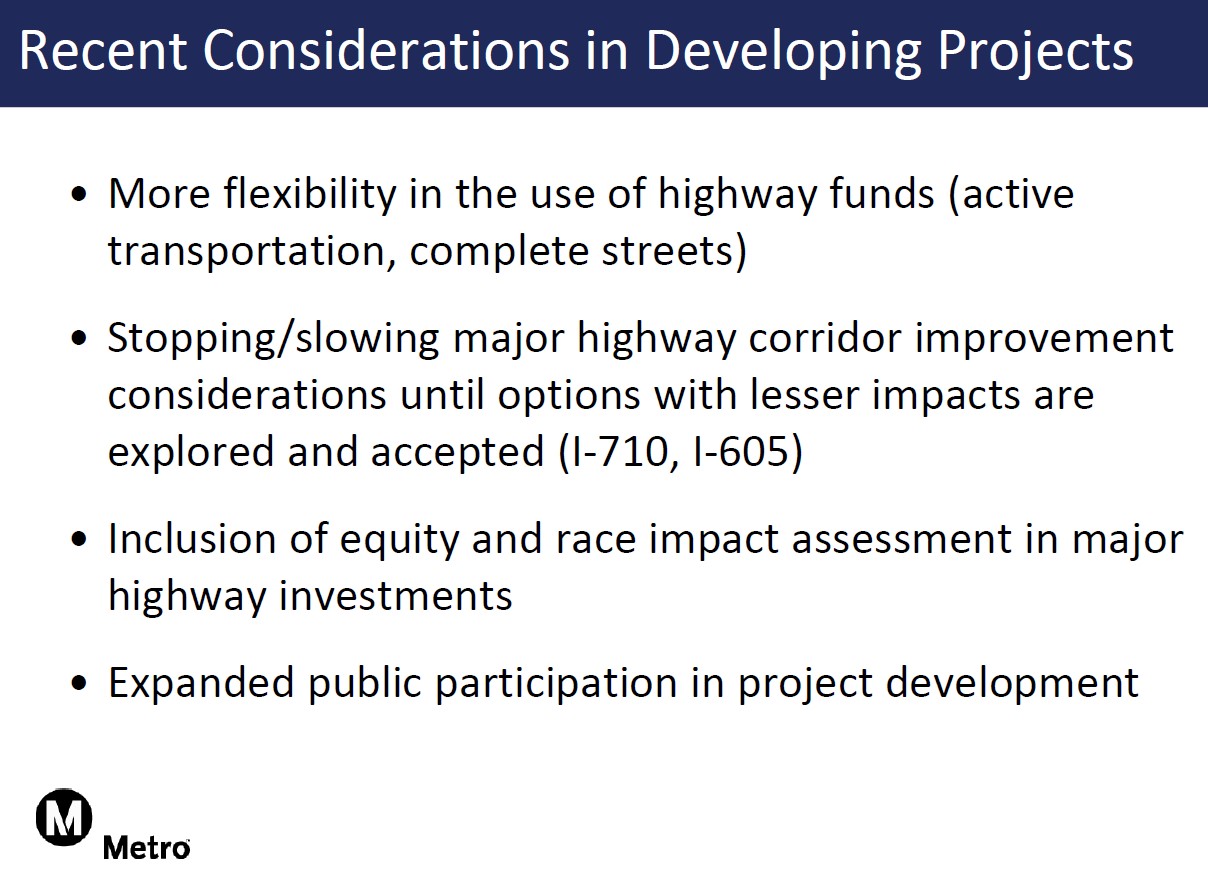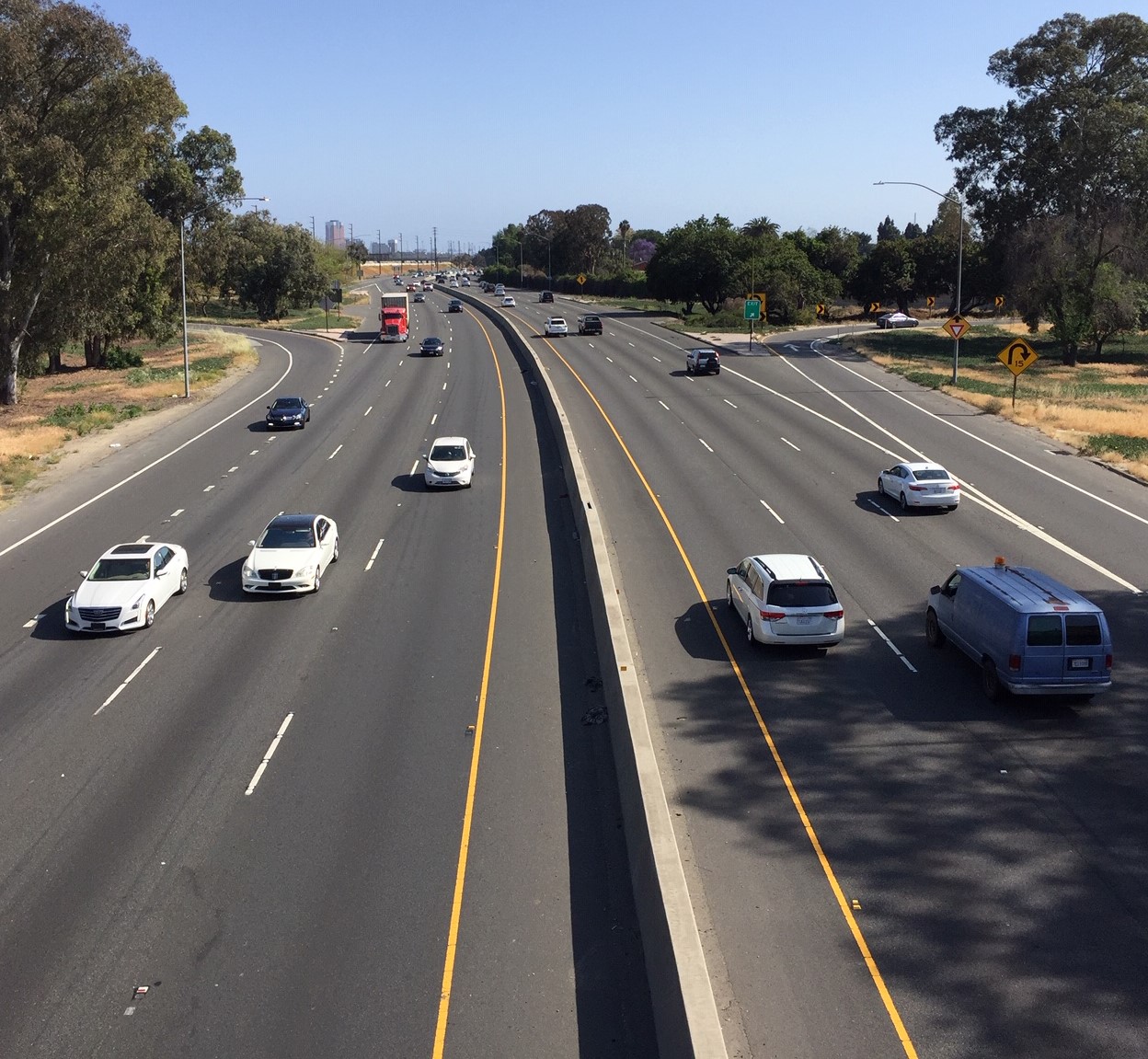At yesterday's meeting of the I-5 Consortium Cities Joint Powers Authority (I5JPA), Executive Director/Authority Engineer Yvette Kirrin expressed frustration that Metro's 605/5 freeway widening had been "hijacked" by community-based organizations and Metro's Office of Equity and Race.
The I5JPA supports expanding the capacity of the 5 Freeway. Metro's 5 Freeway widening plans are part of the 605 Freeway Corridor Improvement Project (605CIP.) In August 2020, Metro announced that the 605CIP would demolish hundreds of homes, mostly along the 5 in the cities of Downey and Santa Fe Springs. In October 2020, the Metro board approved a motion directing Metro staff to study alternatives that would minimize home demolitions (“right-of-way impacts”) and to work with Metro’s Office of Equity and Race to do more outreach with corridor stakeholders.
Yesterday I5JPA E.D. Kirrin stated:
Regarding the 605 [605CIP], there has not been a lot going on with the 605. Obviously we've been listening to our board express concern about Metro sort of getting, I'll say, hijacked by the community based organizations and the equity group in terms of not wanting to move forward with what would be a normally approved NEPA/CEQA [National Environmental Policy Act / California Environmental Quality Act] state and federal process. The Gateway Cities Corridor Cities Committee [Gateway Cities Council of Governments SR 91/605/405 Corridor Cities Committee] met, gosh, almost a year ago now - we're talking about last February - of 2021 - and made a recommendation that they wanted that EIR [Environmental Impact Report] to go out, but that they wanted to see a public participation plan prior to that EIR going out. And we never saw it. So I think that we have the right to be frustrated and continue to be frustrated.
Kirrin isn't the first Southern California highway proponent to express frustration about needing to address equity.
Metro itself has been critical of having to consider equity in its own projects.
Metro Senior Executive Officer Abdollah Ansari has long been a staunch proponent of highway widening. Earlier this year Ansari mocked Metro's public participation processes for getting in the way of freeway projects.

In an August 2021 Metro presentation, Ansari was critical of "recent considerations" hampering the agency from moving forward with highway widening projects. Among those considerations: "inclusion of equity and race impact assessment[s]" and "expanded public participation in project development."
There's a lot not to like in Metro's presentation.
Though calling equity a "recent concern" is perhaps a tacit confession that past highway projects did indeed worsen equity by harming low income communities of color, it is misleading to term equity a "recent" concern. There is a long history of communities of color fighting Metro and Caltrans highway projects. In 1972 civil rights groups filed the Keith v. Volpe lawsuit to rein in 105 Freeway home demolitions and displacement. Today's Coalition for Environmental Health and Justice (CEHAJ) formed in 2001 to fight Caltrans proposal to widen the 710 from 8 to 16 lanes. Caltrans and Metro have canceled freeway projects in whiter more affluent communities - including Beverly Hills and South Pasadena - while carving up communities of color - including Boyle Heights and South Los Angeles.
Caltrans and Metro have long histories of displacing numerous homes and businesses - predominantly in communities of color. Metro and Caltrans have continued to displace families in 2021, and Metro and Caltrans continue to plan for plenty of future displacement.
Since taking charge of Metro in June, CEO Stephanie Wiggins has repeatedly emphasized that equity is among her top priorities.
That is welcome, much-needed imperative, but will the CEO's priorities reach Metro staff - like Ansari - who criticize Metro's modest steps toward equity? Can Metro go beyond lip service, and stop the ongoing harm its freeway widening projects are currently causing?
Many Metro staffers are now slathering the word equity on their pitches for freeway widening. For the past decade-plus, Metro had pushed harmful 710 widening that would have displaced hundreds of families and increased pollution in already pollution-burdened communities. Presentations about Metro's new 710 Freeway widening task force repeatedly emphasize that 710 Freeway widening is being re-envisioned to support equity. Though there is no agenda posted yet on the Metro's 710 widening task force webpage, next week's meeting (which Metro announced would be on Monday, October 19) is supposed to focus on Metro's equity assessment tool.
Some Metro staff define equity in questionable ways. In some cases (for example, this September 2021 Metro staff report on 710 Freeway widening), some Metro statements imply that advancing equity means building freeway projects in equity communities - to address traffic congestion there (though these communities know that freeway widening actually increases congestion).
But is highway widening actually compatible with equity?






